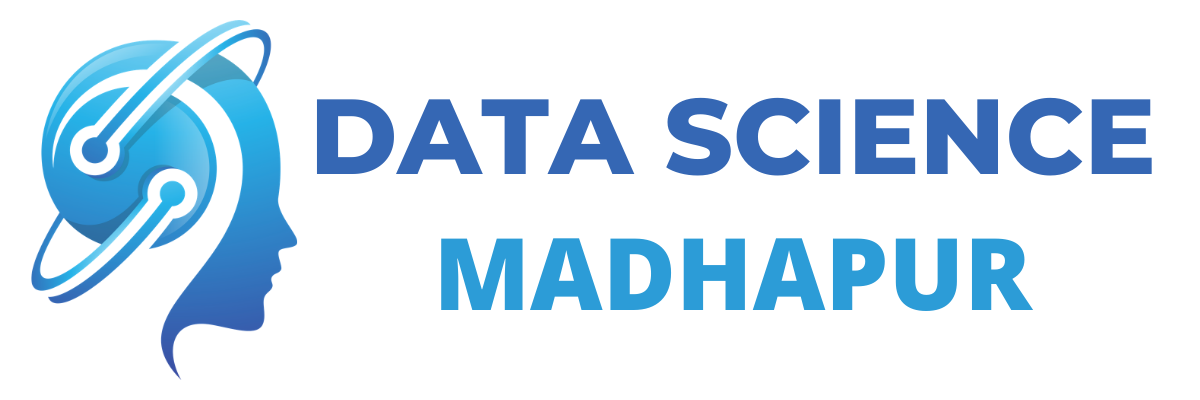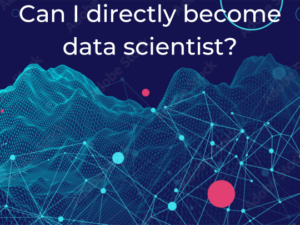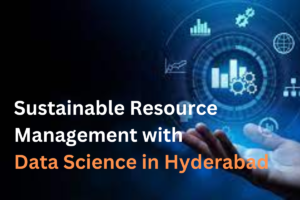Learning SQL can vary in difficulty depending on your prior experience and familiarity with programming concepts. However, compared to many other programming languages, SQL (Structured Query Language) is generally considered relatively easy to learn.
SQL is a specialized language designed for managing and manipulating data in relational databases. Its syntax and structure are specifically tailored for querying and manipulating data stored in tables. SQL focuses on the “what” rather than the “how,” allowing you to express your intentions in a concise and declarative manner.
Are you looking to become a Data science expert? Go through 360DigiTMG’s in Best Data Science in Bangalore.
Here are a few reasons why SQL is often regarded as an accessible language for beginners:
Simplicity:
SQL has a straightforward syntax and follows a simple grammar. It uses a limited set of commands and keywords, making it easier to grasp the fundamentals.
Declarative nature: SQL is a declarative language, meaning you express what data you want rather than how to retrieve it. You specify the desired result set, and the database engine handles the underlying operations.
Widely used and well-documented:
SQL is a standard language for working with relational databases. It is supported by most major database management systems (DBMS) such as MySQL, Oracle, Microsoft SQL Server, PostgreSQL, and SQLite. Consequently, there are abundant resources, tutorials, and documentation available to assist in learning.
Visual representation: SQL often involves working with tabular data, which can be easier to understand and visualize compared to other programming concepts. This makes it more intuitive for many people.
Here are some additional points to consider when learning SQL:
Practice with real-world scenarios: SQL is best learned through hands-on practice. Try to work with real-world datasets or create sample databases to apply your knowledge and solve practical problems. This will help you understand how SQL is used in real-life scenarios and improve your problem-solving skills.
Earn yourself a promising career in Best Data Scientist by enrolling in Best Data Science in Chennai Program offered by 360DigiTMG.
Start with basic concepts: Begin by understanding the fundamental concepts of SQL, such as creating tables, inserting data, retrieving data with SELECT statements, filtering data with WHERE clauses, and modifying data with UPDATE and DELETE statements. These core concepts form the foundation for more advanced SQL operations.
Learn database normalization: Database normalization is a crucial concept in designing efficient and organized databases. It involves structuring tables and relationships to minimize redundancy and maintain data integrity. Understanding normalization principles will help you create efficient and scalable database schemas.
Explore advanced querying: As you become comfortable with the basics, delve into more advanced querying techniques. Learn about JOIN operations to combine data from multiple tables, subqueries to nest queries within queries, and aggregate functions like SUM, AVG, COUNT, and GROUP BY for analyzing data.
Learn the core concepts of Data Science Course video on Youtube:
Understand database management systems:
While SQL is a standard language, different database management systems may have variations in syntax and features. Familiarize yourself with the specific SQL dialect used by the DBMS you are working with. For example, MySQL, PostgreSQL, and Oracle have some differences in syntax and additional features.
Use online resources and practice platforms: Take advantage of online resources such as tutorials, documentation, and SQL learning platforms. Websites like SQLZoo, Codecademy, and W3Schools offer interactive exercises and examples to practice SQL queries. Additionally, you can participate in online communities and forums where you can ask questions and learn from experienced SQL users.
Apply SQL in a broader context: SQL is often used in conjunction with other programming languages or frameworks. Explore how SQL integrates with languages like Python, Java, or web development frameworks to build dynamic applications and perform data analysis.
Understand database indexing: Indexing plays a crucial role in optimizing the performance of database queries. Learn about different types of indexes (such as B-tree, hash, and bitmap indexes) and how to create and utilize them effectively. Indexing can significantly speed up query execution, particularly for large datasets.
Looking forward to becoming a Data scientist Expert? Check out the Best Data Science in Pune and get certified today.
Explore database constraints: Constraints ensure data integrity and enforce rules within the database. Learn about primary keys, foreign keys, unique constraints, and check constraints. Understanding how to define and use constraints properly will help maintain data consistency and accuracy.
Practice database administration tasks:
Apart from querying data, SQL also enables you to perform administrative tasks like creating and managing databases, users, and permissions. Learn about database administration tasks such as creating backups, restoring data, granting privileges, and securing the database.
Optimize SQL queries: As your SQL skills progress, you’ll encounter situations where query performance becomes crucial. Learn techniques such as query optimization, understanding query execution plans, using appropriate indexes, and writing efficient queries. Optimization skills can greatly impact the speed and efficiency of your SQL queries.
Explore advanced database concepts: SQL encompasses a wide range of advanced concepts and features. Consider diving into topics such as stored procedures, triggers, views, transactions, and window functions. These advanced concepts can enhance your ability to manipulate and manage data effectively.
Work on real-world projects: Apply your SQL skills to real-world projects or scenarios. This could involve building a database-driven web application, performing data analysis on large datasets, or creating reports and dashboards using SQL queries. Practical projects will help solidify your understanding and demonstrate your SQL proficiency.
Stay updated: Keep up with the latest advancements and features in SQL. New versions of database management systems often introduce enhancements to SQL syntax, performance optimizations, and new functionalities. Stay informed about these updates to leverage the latest capabilities of SQL.
Becoming a Data science Expert! is possible now with the 360DigiTMGBest Data Science in Hyderabad. Get trained by the alumni from IIT, IIM, and ISB.
Solve practice exercises: Regularly solve practice exercises and challenges to reinforce your SQL skills. Many online platforms provide a variety of SQL exercises with increasing levels of difficulty. Working on these exercises will sharpen your problem-solving abilities and help you explore different SQL concepts and techniques.
Analyze existing SQL code:
Take time to analyze and understand existing SQL code written by experienced developers. Read through SQL scripts, stored procedures, and complex queries to grasp different approaches and learn from best practices. This will expose you to real-world scenarios and improve your ability to work with existing SQL codebases.
Debug and optimize SQL queries: Debugging is an essential skill in SQL development. Practice identifying and fixing errors in your SQL queries. Additionally, work on optimizing queries by analyzing their execution plans, identifying bottlenecks, and finding ways to improve performance. Understanding query execution and optimization techniques will enhance your SQL proficiency.
Data Science Placement Success Story
Data Science Training Institutes in Other Locations
Tirunelveli, Kothrud, Ahmedabad, Hebbal, Chengalpattu, Borivali, Udaipur, Trichur, Tiruchchirappalli, Srinagar, Ludhiana, Shimoga, Shimla, Siliguri, Rourkela, Roorkee, Pondicherry, Rajkot, Ranchi, Rohtak, Pimpri, Moradabad, Mohali, Meerut, Madurai, Kolhapur, Khammam, Jodhpur, Jamshedpur, Jammu, Jalandhar, Jabalpur, Gandhinagar, Ghaziabad, Gorakhpur, Gwalior, Ernakulam, Erode, Durgapur, Dombivli, Dehradun, Cochin, Bhubaneswar, Bhopal, Anantapur, Anand, Amritsar, Agra , Kharadi, Calicut, Yelahanka, Salem, Thane, Andhra Pradesh, Greater Warangal, Kompally, Mumbai, Anna Nagar, ECIL, Guduvanchery, Kalaburagi, Porur, Chromepet, Kochi, Kolkata, Indore, Navi Mumbai, Raipur, Coimbatore, Bhilai, Dilsukhnagar, Thoraipakkam, Uppal, Vijayawada, Vizag, Gurgaon, Bangalore, Surat, Kanpur, Chennai, Aurangabad, Hoodi,Noida, Trichy, Mangalore, Mysore, Delhi NCR, Chandigarh, Guwahati, Guntur, Varanasi, Faridabad, Thiruvananthapuram, Nashik, Patna, Lucknow, Nagpur, Vadodara, Jaipur, Hyderabad, Pune, Kalyan.
Data Analyst Courses In Other Locations
Tirunelveli, Kothrud, Ahmedabad, Chengalpattu, Borivali, Udaipur, Trichur, Tiruchchirappalli, Srinagar, Ludhiana, Shimoga, Shimla, Siliguri, Rourkela, Roorkee, Pondicherry, Rohtak, Ranchi, Rajkot, Pimpri, Moradabad, Mohali, Meerut, Madurai, Kolhapur, Khammam, Jodhpur, Jamshedpur, Jammu, Jalandhar, Jabalpur, Gwalior, Gorakhpur, Ghaziabad, Gandhinagar, Erode, Ernakulam, Durgapur, Dombivli, Dehradun, Bhubaneswar, Cochin, Bhopal, Anantapur, Anand, Amritsar, Agra, Kharadi, Calicut, Yelahanka, Salem, Thane, Andhra Pradesh, Warangal, Kompally, Mumbai, Anna Nagar, Dilsukhnagar, ECIL, Chromepet, Thoraipakkam, Uppal, Bhilai, Guduvanchery, Indore, Kalaburagi, Kochi, Navi Mumbai, Porur, Raipur, Vijayawada, Vizag, Surat, Kanpur, Aurangabad, Trichy, Mangalore, Mysore, Chandigarh, Guwahati, Guntur, Varanasi, Faridabad, Thiruvananthapuram, Nashik, Patna, Lucknow, Nagpur, Vadodara, Jaipur, Hyderabad, Pune, Kalyan, Delhi, Kolkata, Noida, Chennai, Bangalore, Gurgaon, Coimbatore.
Address:
360DigiTMG – Data Analytics, Data Science Course Training Hyderabad
2-56/2/19, 3rd floor,, Vijaya towers, near Meridian school,, Ayyappa Society Rd, Madhapur,, Hyderabad, Telangana 500081
Contact Number: +91-9989994319/1800-212-654321




